What is in this leaflet
This leaflet answers some of the common questions about ORATANE® capsules. It does not contain all the available information.
It does not take the place of talking to your doctor or pharmacist.
All medicines have risks and benefits. Your doctor has weighed the risks of you taking ORATANE® capsules against the benefits the medicine is expected to have for you.
If you have any concerns about taking this medicine, ask your doctor or pharmacist.
Keep this leaflet with the medicine. You may need to read it again.
What is ORATANE® used for
The active ingredient in ORATANE® capsules is isotretinoin, a substance very similar to vitamin A.
ORATANE® belongs to a group of medicines called retinoids.
ORATANE® capsules are used to treat acne. Of the many acne medicines, ORATANE® is used for more severe cases.
ORATANE® capsules work by cutting down the amount of oily substances (sebum) made by glands in your skin. ORATANE® capsules will also help to reduce bacteria, inflammation and open clogged pores.
Your doctor may have prescribed ORATANE® capsules for another purpose.
Ask your doctor if you have any questions about why ORATANE® capsules have been prescribed for you.
ORATANE® capsules are not addictive.
Before you take ORATANE®
When you must not take ORATANE® capsules
Do not take ORATANE® capsules if:
| 1. you are pregnant or for at least one month before you intend to become pregnant. If you fall pregnant while taking Oratane® Capsules, there is an extremely high risk of having a baby that is severely deformed. This means that you must use effective contraception for one month before, during and one month after treatment with Oratane® Capsules. 2. you are breastfeeding. Breastfeeding must stop before Oratane® treatment can start. Do not breastfeed while taking Oratane® Capsules. |
- you have had an allergic reaction to ORATANE® capsules, vitamin A, other retinoids or any ingredients listed at the end of this leaflet.
- you are taking tetracycline antibiotics. These include doxycycline hydrochloride (Doryx®, Doxine, Doxy, Vibra-Tabs 50®, Frakas®), tetracyclin hydrochloride (Achromycin®) , minomycin hydrochloride (Minomycin® 50, Akamin®).
- you have severe liver disease.
- you have very high levels of fat (triglycerides, cholesterol) in your blood.
- you have an excessive amount of vitamin A in your diet (hypervitaminosis A).
- the packaging is torn or shows signs of tampering, or if the capsules do not look quite right.
- the expiry date (EXP) printed on the pack has passed. If you take this medicine after the expiry has passed, it may not work as well.
If you are not sure if you should start taking ORATANE® capsules, contact your doctor.
Do not give ORATANE® capsules to children. There is very little information available on the effects of ORATANE® in children.
Before you start to take ORATANE® capsules.
You must tell your doctor if:
- you have allergies to other substances, such as medicines, foods, preservatives or dyes. Oratane® capsules contain soya oil, which may contain traces of arachidic acid (a component of peanut oil).
- you have any other health problems or issues including:
- diabetes, or family members with diabetes
- depression, or family members with depression
- liver disease
- kidney disease
- lipid (cholesterol or triglyceride) disorder
- hormone disorder
- stomach or bowel disease
- you drink large amounts of alcohol.
If you have not told your doctor about any of the above, tell him or her before starting ORATANE® capsules.
Taking other medicines
Tell your doctor if you are taking any other medicines including any that you have bought from a pharmacy, supermarket or health food shop.
Some medicines interfere with ORATANE® capsules. These include:
- tetracycline antibiotics, including Doryx®, Doxine, Doxy, Vibra-Tabs 50®, Frakas® Achromycin® Minomycin® 50 and Akamin®.
- vitamin A or formulations containing vitamin A, including vitamin supplements.
- other medicines for acne.
- the mini-pill, a progesterone-only oral contraceptive pill.
These medicines may be affected by ORATANE® capsules or may affect how well it works. You may need to take different amounts of your medicine, or you may need to take different medicines. Your doctor will advise you.
Talk to your doctor or pharmacist if you are not sure about this list of medicines.
How to take ORATANE® capsules
How much to take
Always take ORATANE® capsules exactly as your doctor or pharmacist tells you to. The directions given may differ from information contained in this leaflet.
Your doctor will determine exactly how much ORATANE® capsules you need for your condition.
This will be matched especially to your needs and your bodyweight and may be adjusted by your doctor when it is known how you respond to ORATANE® capsules.
How to take it
ORATANE® capsules should be swallowed whole with a glass of water or milk.
Do not open ORATANE® capsules or take damaged ORATANE® capsules.
When to take it
ORATANE® capsules are taken once or twice a day and must be taken with meals.
Female patients should wait until the 2nd or 3rd day of their menstrual period before starting ORATANE® capsules. This helps to ensure that you are not pregnant before you start ORATANE® therapy.
How long to take it
Continue taking ORATANE® capsules for as long as your doctor prescribes.
Your treatment with ORATANE® capsules will usually last 16 weeks. Sometimes a second course of treatment may be necessary. In the first few weeks your acne will probably get worse before it gets better. Don’t worry as this is a sign that ORATANE® capsules are working.
After this treatment period, your skin should have cleared up significantly. Skin condition continues to improve even after ORATANE® treatment has finished.
ORATANE® capsules cannot improve scars or pitting that existed before commencement of treatment, but it will prevent further scarring.
If you forget to take ORATANE® capsules
If you forget to take ORATANE® capsules, do not make up for the missing dose by doubling the next dose. This may increase the chance of getting an unwanted side effect.
If it is almost time for your next dose, skip the dose that you have missed and take the next dose when you are meant to.
If you have missed several doses, please inform your doctor and follow the advice given to you.
In case of an overdose
Immediately telephone your doctor, or Poisons Information Centre (Ph: 13 11 26) for advice, or go to Accident and Emergency at your nearest hospital, if you think you or anyone else may have taken too many ORATANE® capsules. Do this even if there are no signs of discomfort or poisoning. You may need urgent medical attention.
Signs of overdose include transient headache, vomiting, facial flushing, reddened, cracked lips, stomach pain, headache, dizziness and unsteady walking.
Keep telephone numbers for these places handy.
While you are taking ORATANE®
Things you must do
If you become pregnant while taking ORATANE® capsules, stop taking it and inform your doctor immediately. ORATANE® capsules can cause birth defects (damage to unborn babies). This means that you must use strict birth control for at least 1 month before you start ORATANE® capsules and for the whole time you are taking ORATANE® capsules and for at least 1 month after you finish taking ORATANE® capsules.
There is no known risk to males who wish to father children.
Tell all doctors, dentists and pharmacists who are treating you, that you are on ORATANE® capsules.
Tell your doctor if you feel ORATANE® capsules are not helping your condition. But also tell the doctor if, for any reason, you have not taken your medicine exactly as prescribed.
If you are intending to do a lot of heavy lifting or exercise, tell your doctor. ORATANE® capsules can make your muscles and joints prone to stiffness or tenderness.
Be sure to keep all of your appointments with your doctor so he or she can monitor your progress. You may require regular tests to check your liver, blood sugar levels and blood cholesterol levels.
Things you must not do
Do not stop taking ORATANE® capsules or change the dose without first checking with your doctor.
Do not let yourself run out of ORATANE® capsules over the weekend or on holidays.
Do not use ORATANE® capsules to treat other complaints unless told to by your doctor.
Do not give ORATANE® capsules to anyone else, even if their symptoms seem similar to yours.
Do not donate blood while taking ORATANE® capsules or for at least four weeks after stopping treatment.
Do not take any other medicines without first telling your doctor or pharmacist.
Things to be careful of
Be careful driving or operating machinery until you know how ORATANE® capsules affect you. Normally ORATANE® capsules would not affect your ability to drive a car or operate machinery. However, altered night vision and other visual disturbances may occur while taking ORATANE® capsules. Make sure you know how you react to ORATANE® Capsules before you drive a car, operate machinery or do anything else that may be dangerous if your vision is affected.
Wearing contact lenses during treatment with ORATANE® Capsules may cause discomfort. ORATANE® capsules cause dry eyes so an artificial lubricant might be necessary. Otherwise you may need to compensate by wearing your glasses.
Avoid waxing or dermatological abrasions while taking ORATANE® Capsules and for six months after ORATANE® treatment has stopped. Your skin may be more sensitive while on ORATANE® Capsules. Waxing may cause dermatitis and dermatological abrasions may cause scarring during and for several months after treatment.
Avoid excessive sun exposure, solariums and always apply sunscreen while taking ORATANE® capsules. Your skin may be more prone to sunburn while on ORATANE® capsules.
Avoid using facial peels, electrolysis and some hair treatments. Your skin and hair will be more delicate while taking ORATANE® capsules.
Side effects
In addition to the beneficial effects of ORATANE® capsules it is possible that unwanted effects will occur during treatment, even when it is used as directed.
Tell your doctor or pharmacist as soon as possible if you do not feel well while taking ORATANE® capsules.
All medicines can have side effects. Sometimes they are serious, most of the time they are not. You may need medical treatment if you get some of the side effects.
Do not be alarmed by this list of possible side effects. You may not experience any of them.
Ask your doctor or pharmacist to answer any questions you may have.
Tell your doctor if you notice any of the following and they worry you:
- dryness of the lips, mouth, nose, eyes and skin. Soften these areas not affected by acne with moisturiser or petroleum jelly to avoid dryness
- fragile skin
- change in colour of the skin
- peeling of skin on palms of hands and soles of feet
- itchy skin rash
- an increased susceptibility to sunburn
- sweating
- changes to nails
- eye problems such as dry, sore, swollen or itchy eyes, discharge or trouble seeing at night
- sexual dysfunction including impaired sexual function in males, decreased libido and gynaecomastia
- nosebleeds
- tenderness, stiffness in bones, joints or muscles
- headache
- tiredness
- temporary hair loss (sometimes occurs and is usually temporary but in rare cases has persisted)
- excessive hairiness
- hoarseness
These side effects are usually mild, and dose related. After the dose of ORATANE® capsules is reduced or stopped most of these side effects should disappear within a few days or weeks.
Stop taking ORATANE® capsules and contact your doctor immediately if you experience any of the following:
- vomiting
- nausea
- persistent headache
- blurred vision or visual disturbances
- changes in your hearing or ringing in your ears
- severe upper stomach pain
- unexpected muscle pain, tenderness or weakness
- blood in stools or severe diarrhoea
- severe bruising
- sudden red, often itchy spots, similar to the rash of measles starting on the face, hands or feet. The spots may blister or change to flat round, raised, red, pale centred marks. Also, you may have fever, sore throat, headache and/or diarrhoea.
- painful red areas that change to large blisters and end with peeling of layers of skin that may occur on the lips, mouth, eyes, nose and genitals. Those affected may have fever and chill, aching muscle and generally feel unwell.
- thinking, seeing or hearing things that are not real
- feeling depressed with or without suicidal thoughts
Symptoms of depression may include:
- start to feel sad or have crying spells
- lose interest in activities you once enjoyed
- sleep too much or have trouble sleeping
- become more irritable, angry or aggressive than usual e.g. temper outbursts, thoughts of violence
- have a change in your appetite or body weight
- have trouble concentrating
- withdraw from your friends or family
- feel like you have no energy
- have feelings of worthlessness or inappropriate guilt
- start having thoughts about hurting yourself or taking your own life (suicidal thoughts).
These may be serious side effects and may require urgent medical attention. Serious side effects are rare.
This is not a complete list of all possible side effects. Others may occur in some people and there may be some unknown side effects.
Tell your doctor if you notice anything else that is making you feel unwell, even if it is not on this list. In some cases, your doctor may want to reduce your dose or stop treatment.
Do not be alarmed by this list of possible side effects. You may not experience any of them.
If you are concerned about these or any other unexpected effects, please talk to your doctor.
After taking ORATANE® capsules
Storage
Keep your capsules in the blister pack and closed carton until it is time to take them. If you take the capsules out of the packaging they will not keep as well.
Keep ORATANE® 5 mg, 10 mg and 40 mg capsules in a cool dry place where the temperature stays below 25°C. Protect from light and moisture.
Keep ORATANE® 20 mg and 30mg capsules in a cool dry place where the temperature stays below 30°C. Protect from light and moisture.
Do not store ORATANE® capsules or any other medicine in the bathroom or near a sink.
Do not leave ORATANE® capsules in the car or on windowsills. Heat and dampness can destroy some medicines.
Keep ORATANE® capsules where children can not reach them. A locked cupboard at least one-and-a-half metres above the ground is a good place to store medicines.
Disposal
Tell your doctor if you stop taking the capsules or the capsules have passed their expiry date. Ask your pharmacist what to do with any capsules that are left over.
Product description
What ORATANE® capsules look like
ORATANE® 5 mg capsules are soft, oval, faint pinkish/cream to cream in colour containing a yellow/orange liquid. Available in blister packs of 60 capsules.
ORATANE® 10 mg capsules are soft, oval, opaque light violet in colour containing a yellow/orange liquid. Available in blister packs of 60 capsules.
ORATANE® 20 mg capsules are soft, oval, opaque maroon red in colour containing a yellow/orange liquid. Available in blister packs of 60 capsules.
ORATANE® 30 mg capsules are pink coloured soft gelatin capsules containing a yellow/ orange liquid. Available in blister pack of 60 capsules.
ORATANE® 40 mg capsules are soft, oval, opaque orange in colour containing a yellow/orange liquid. Available in blister packs of 30 capsules.
Ingredients
Active ingredient:
Isotretinoin
Inactive ingredients:
The capsules also contain Beeswax – yellow, Disodium edetate, Butylated Hydroxyanisole, dl-alpha-tocopherol, Soya oil – partially hydrogenated, Soya oil, Vegetable oil – hydrogenated (5mg, 10mg and 20mg only), Soya oil – hydrogenated (30mg and 40mg only).
The capsule shell contains Sorbitol solution (70% non-crystallising), Glycerol, Gelatin†, Titanium dioxide, Water – purified, Brilliant scarlet 4R CI16255 (10mg and 20mg only), Sunset yellow FCF CI15985 (40mg only), Indigo carmine CI73015 (20mg only), Iron oxide black CI177499 (10mg only), Iron oxide red (30mg only).
†Contains sulfites. May contain trace amounts of phenylalanine.
ORATANE® 5 mg AUST R 127499
ORATANE® 10 mg AUST R 75034
ORATANE® 20 mg AUST R 69868
ORATANE® 30 mg AUST R 303071
ORATANE® 40 mg AUST R 117206
Further information
If you have any questions about ORATANE® capsules, please ask your doctor or pharmacist. Further information may also be obtained from Arrow Pharmaceuticals Pty Ltd (Ph: 1300 927 769). ORATANE® capsules are only available on your dermatologist’s prescription.
Sponsor
Douglas Pharmaceuticals Australia Pty Ltd
15 – 17 Chapel Street
Cremorne Victoria 3121
Distributed by Arrow Pharmaceuticals Pty Ltd on behalf of Oraderm Pharmaceuticals Pty Ltd
15 – 17 Chapel Street
Cremorne Victoria 3121
This leaflet was last updated in February 2022.
*ORATANE is a registered trade mark of Douglas Pharmaceuticals Limited in New Zealand and other countries.
Published by MIMS January 2023

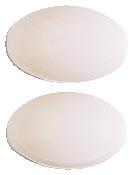
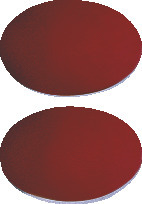
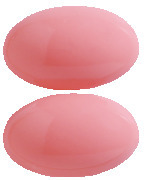
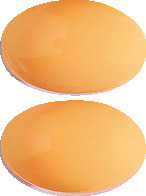
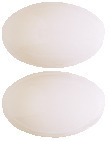
 Isotretinoin, C20H28O2.
Isotretinoin, C20H28O2.